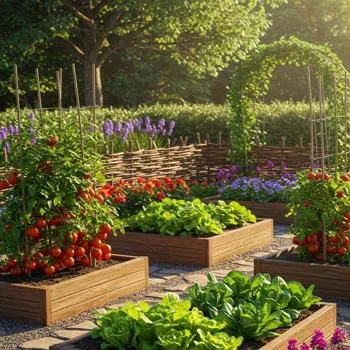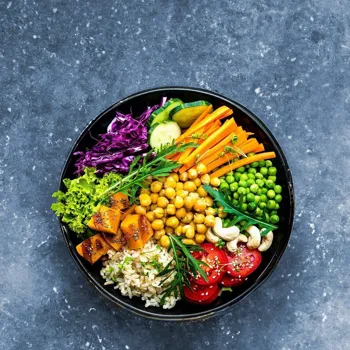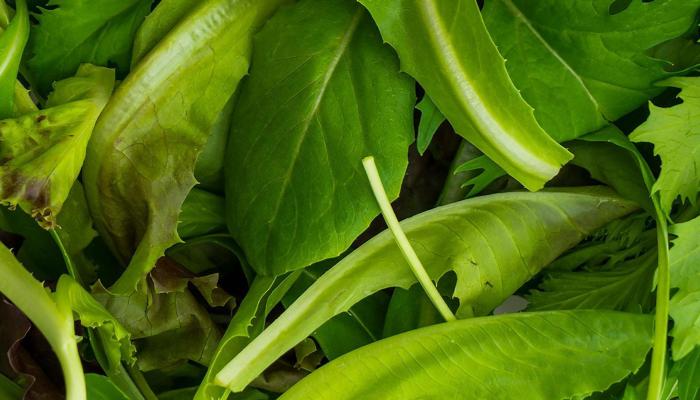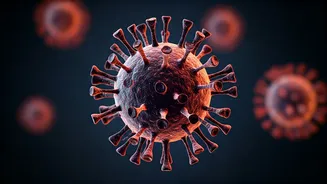Unraveling the Myths & Facts of Plant-Based Diets: A Dive into Nutrition & Lifestyle. Explore the truth behind veg eating!
Namaste, readers! Plant-based diets are all the rage these days, aren't they? From
Bollywood celebrities to your next-door neighbour, everyone seems to be exploring the world of vegetarian and vegan eating.
But with so much information floating around, it's easy to get confused between what's true and what's just a "chakkar." So, let's dive into the myths and facts about plant-based diets, clearing the air and giving you the real picture. After all, knowledge is the best health supplement!
Plant-based diets are not just for Westerners; India has a rich history of vegetarianism
One of the biggest misconceptions is that plant-based diets are only for Westerners or those trying to lose weight drastically. This couldn't be further from the truth!

India has a rich history of vegetarianism, with many communities following plant-based diets for generations, thanks to religious and cultural beliefs. These diets are not just about "dieting;" they can be a sustainable and healthy way of life for anyone, regardless of their background.
Ultimately, it boils down to balanced eating and understanding your body's needs. Another myth is that plant-based eaters automatically become weaklings. Proper research and implementation are key for success.
Plant-based diets can provide complete protein with variety
There are claims that plant based meals cannot offer you complete protein. Protein is what helps repair bodily tissues. The fact is, well-planned plant-based diets absolutely can provide all the essential amino acids your body needs.
The key is to eat a variety of plant-based protein sources throughout the day. Think lentils, chickpeas, beans, tofu, quinoa, nuts, and seeds. Combining these sources ensures you get a complete protein profile. Also, forget the idea that you need to eat all these proteins at the same time!
Your body is quite smart and can pool amino acids from different meals throughout the day to create complete proteins. The notion that "complete protein" is only found in non-vegetarian food is a very old one. It should not deter you from trying out plant-based meals.
Plant-based diets can be affordable with staples like lentils, rice, and fresh produce
Another common concern is that plant-based diets are expensive. While some fancy vegan products can burn a hole in your pocket, the foundation of a healthy plant-based diet is actually very affordable. Think about it: lentils, rice, seasonal vegetables, and fruits are all budget-friendly staples.
These ingredients form the core of many Indian meals and are accessible to most people. Plan your meals around these affordable options and limit processed vegan alternatives. It’s the same with almost any type of meal.
Eating fresh local produce, no matter what your overall diet looks like, is much kinder on your wallet! So, don't let the price tag scare you away from exploring the delicious and diverse world of plant-based eating.
A smarter way is to try to keep track of markets that sell fresh produce without the big price tags.
Plant-based diets are exciting, flavorful with diverse options
Now, let's tackle the myth that plant-based diets are boring and restrictive. Many people think it's all about bland salads and tasteless tofu. But trust us, plant-based cooking can be incredibly exciting and flavorful!
Indian cuisine, in particular, has a treasure trove of vegetarian dishes that are bursting with spices and textures. From chana masala to vegetable biryani, the options are endless. The key is to experiment with different ingredients, spices, and cooking techniques.
Explore online recipes, try new restaurants, and get creative in the kitchen. You'll be surprised at how diverse and delicious plant based meals can be. Who knows you could even become the best vegan chef.
What’s more, some people find their tastebuds get a fresh new perspective on food as they begin to eat vegetarian dishes.
Plant-based diets: manage iron deficiency with Vit C, avoid tea/coffee
Speaking of nutrients, iron deficiency is a common concern for those considering plant-based diets. While it's true that plant-based iron (non-heme iron) is not as readily absorbed as iron from non-vegetarian sources (heme iron), it's definitely manageable.

Vitamin C significantly enhances the absorption of non-heme iron, so pair your iron-rich foods with sources of Vitamin C like lemons, oranges, bell peppers, and tomatoes. For example, squeeze some lemon juice over your spinach or add tomatoes to your lentil soup.
Additionally, avoid drinking tea or coffee with your meals, as they can inhibit iron absorption. And for those at higher risk of iron deficiency, such as women, consulting a doctor about iron supplementation is a good idea.
Getting tests done regularly can also help you keep track of your nutrients.
Transition gradually to plant-based diet for long-term success; seek support and guidance
Finally, there's the myth that plant-based diets are difficult to sustain long-term. Transitioning to any new way of eating takes time and effort. Start small, make gradual changes, and focus on adding more plant-based foods to your diet rather than focusing on what you're eliminating.
Find a supportive community, learn from experienced plant-based eaters, and be patient with yourself. Remember, it's not about being perfect; it's about making conscious choices that align with your health goals and values.
There’s no need to put undue pressure on yourself to become flawlessly vegetarian or vegan overnight. And always remember that it is alright to ask for help. Enlist the help of certified dietitians for help in structuring your diet.
AI Generated Content. Glance/InMobi shall have no liability for the content















